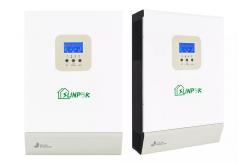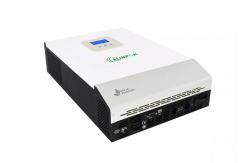230V 5kw 48V Off Grid Inverter MPPT Solar Inverter EN-IEC 60335
|
The main difference between an off-grid inverter and a grid-connected inverter lies in their connection to the power supply and their use within the context of a solar power system:Off-Grid Inverter: An off-grid inverter is used in standalone solar power systems that are not connected to the utility grid. These systems are typically found in remote locations or areas where access to the grid is limited. The primary function of an off-grid inverter is to convert the DC (direct current) electricity generated by solar panels into AC (alternating current) electricity that can be used to power household appliances and devices. In addition to this conversion, off-grid inverters also have the following features:
Battery Charging: Off-grid systems usually include battery storage to store excess energy generated during sunny periods for use during cloudy days or at night. The inverter manages the charging and discharging of these batteries.
Voltage Regulation: Off-grid inverters often need to handle fluctuations in solar panel voltage and battery voltage to ensure consistent output voltage for household use.
Isolation: Off-grid inverters are designed to operate independently from the utility grid and do not synchronize with the grid's frequency or voltage.
Grid-Connected Inverter: A grid-connected inverter, as the name suggests, is used in solar power systems that are connected to the utility grid. These systems are more common in urban and suburban areas where a reliable grid connection is available. Grid-connected inverters serve the purpose of converting the DC electricity generated by solar panels into AC electricity that can be used within the household. However, there are several key distinctions:
Grid Synchronization: Grid-connected inverters are designed to synchronize with the frequency and voltage of the utility grid. This allows them to inject excess energy back into the grid when the solar system generates more electricity than the household needs.
No Energy Storage: Unlike off-grid systems, grid-connected systems generally do not include battery storage. Instead, any excess electricity generated by the solar panels can be fed back into the grid, often earning credit or compensation from the utility company.
Net Metering: In grid-connected systems, net metering is a common practice where the electricity meter can run backward when the solar panels produce more energy than the household consumes. This effectively offsets the electricity consumed from the grid when the panels produce less energy, providing cost savings.
In summary, the main distinction between off-grid and grid-connected inverters is their connection to the grid and the presence of energy storage. Off-grid inverters are used in systems with energy storage for standalone operation, while grid-connected inverters synchronize with the grid and allow excess energy to be fed back into the grid, often without the need for batteries.
|
|||||||||||||||||||||||||||||||||||||||||||||||||||||||||||||||||||||||||||||||||||||||||||||||||||||||||||||||||||||||||||||||||
| Product Tags: 5kw 48V off grid inverter 230V 5kw off grid inverter off grid MPPT solar inverter EN-IEC 60335 | |||||||||||||||||||||||||||||||||||||||||||||||||||||||||||||||||||||||||||||||||||||||||||||||||||||||||||||||||||||||||||||||||
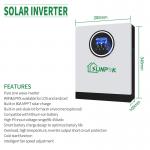
|
Sunpok 48v Solar Inverter Sunpok Hybrid Off Grid Inverter Inverter Product |

|
Sunpok 48v Solar Inverter Sunpok Hybrid Off Grid Inverter Inverter Product |
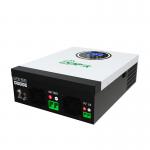
|
Sunpok Factory Price 16kw Inverter Hybrid Single Phase 100kw On Off Grid Inverter |
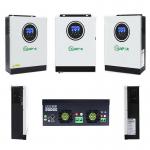
|
5kw Off-grid Inverter In Stock Solar Off-grid Energy Storage Inverter Supplier |
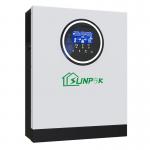
|
Sunpok 5kw 6kw 7kw On Grid Off Grid Solar Inverter Home Use Hybrid Off Grid Inverter |
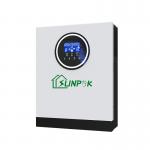
|
Sunpok Energy Inverter 5kw 8kw Solar Inverter Hybrid Off-grid Inverter With Wifi |

